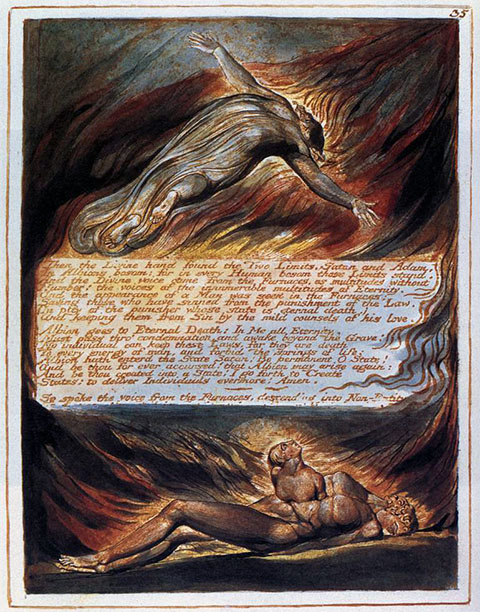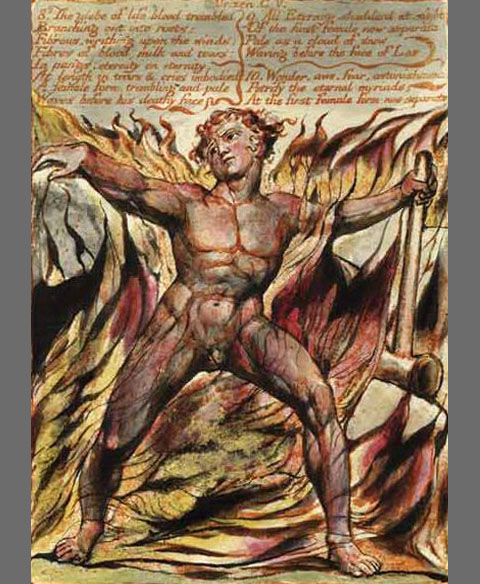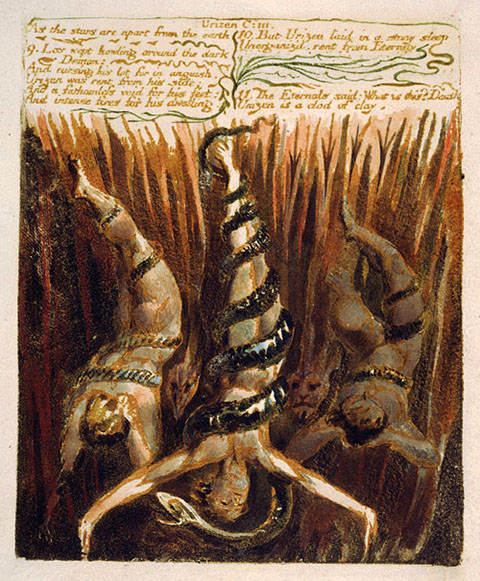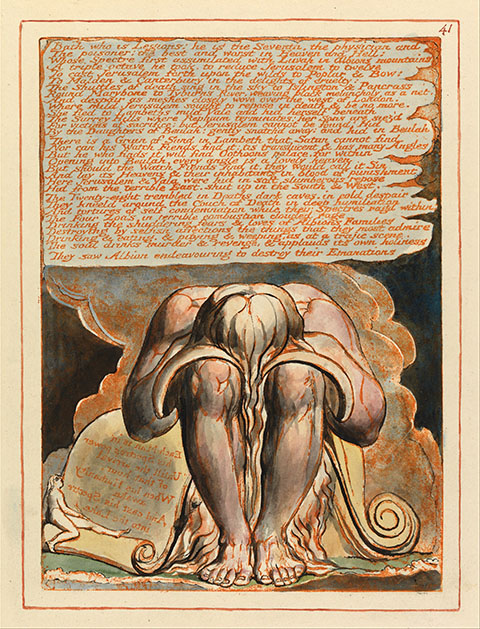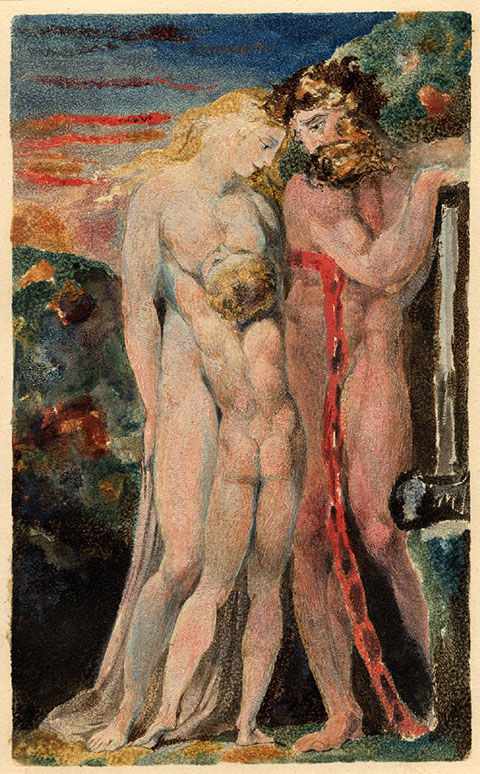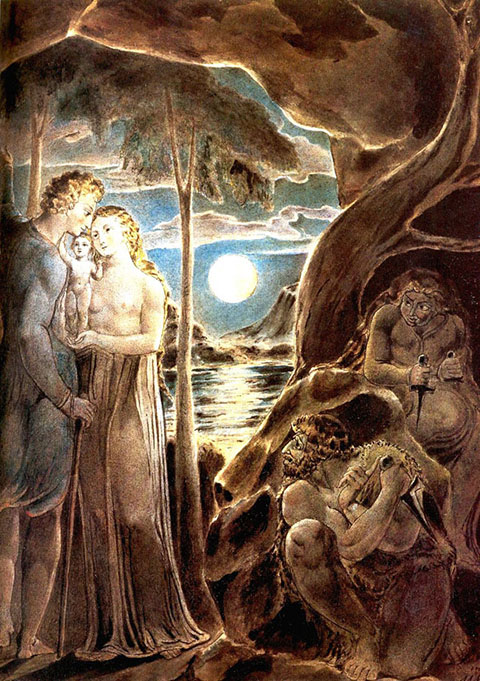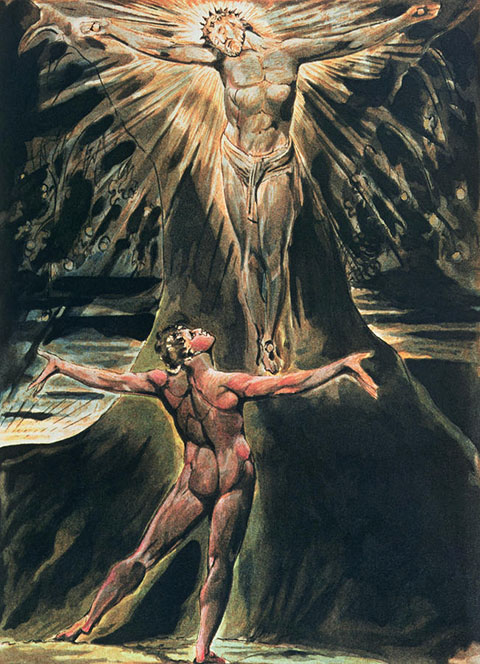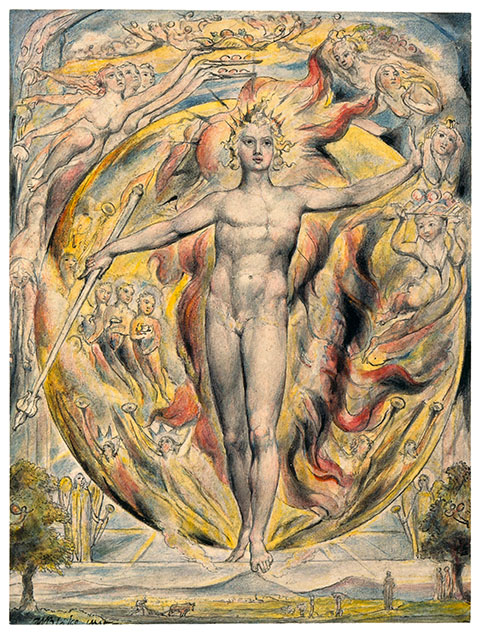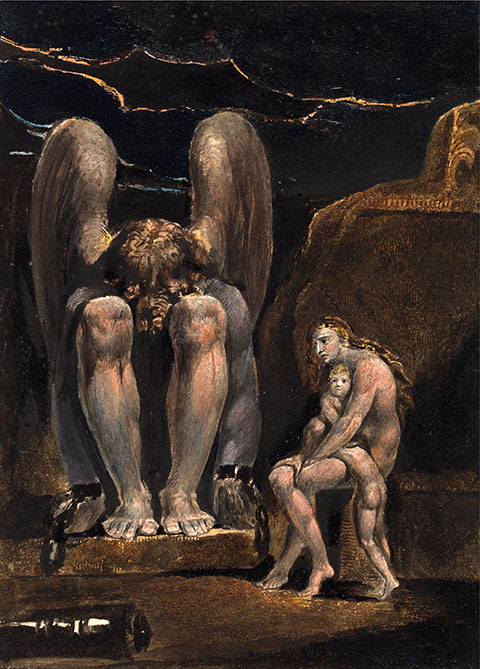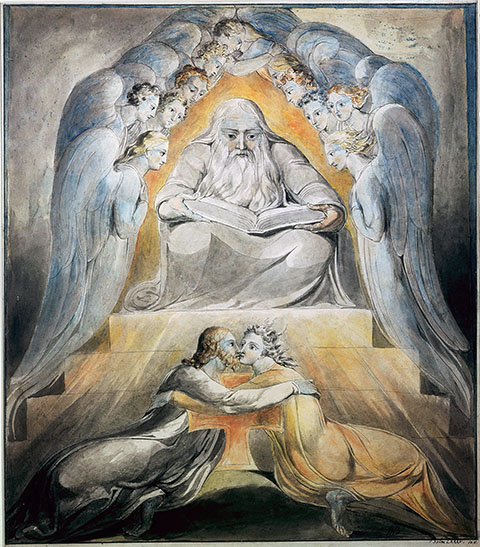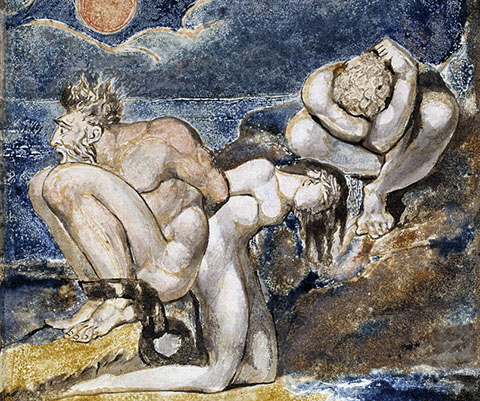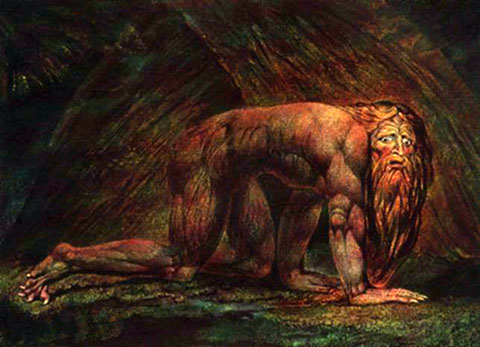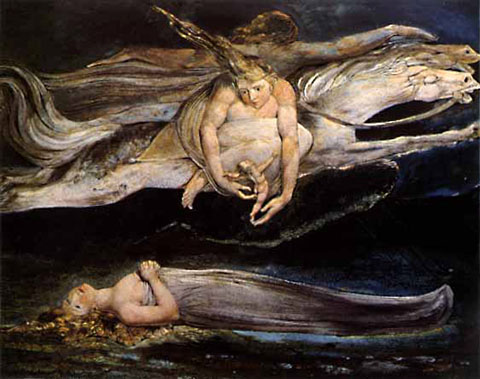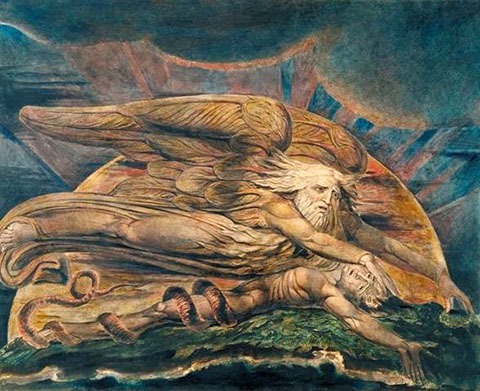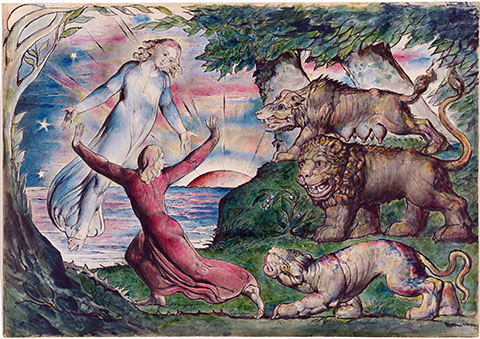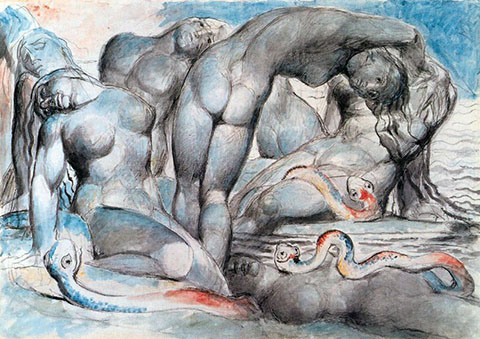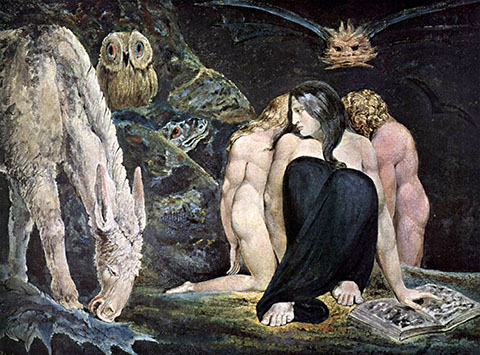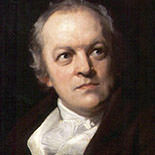 William Blake (November 28, 1757 – August 12, 1827) was an English poet, painter and printmaker.
William Blake (November 28, 1757 – August 12, 1827) was an English poet, painter and printmaker.
Largely unrecognized during his lifetime, Blake is now considered a seminal figure in the history of the poetry and visual arts of the Romantic Age. His prophetic poetry has been said to form “what is in proportion to its merits the least read body of poetry in the English language”. His visual artistry led one contemporary art critic to proclaim him “far and away the greatest artist Britain has ever produced”. Although he lived in London his entire life (except for three years spent in Felpham), he produced a diverse and symbolically rich corpus, which embraced the imagination as “the body of God” or “human existence itself”.
Considered mad by contemporaries for his idiosyncratic views, Blake is held in high regard by later critics for his expressiveness and creativity, and for the philosophical and mystical undercurrents within his work. His paintings and poetry have been characterised as part of the Romantic movement and “Pre-Romantic”, for its large appearance in the 18th century. Reverent of the Bible but hostile to the Church of England (indeed, to all forms of organized religion), Blake was influenced by the ideals and ambitions of the French and American Revolutions, though later he rejected many of these beliefs he maintained an amiable relationship with Thomas Paine, he was also influenced by thinkers such as Emanuel Swedenborg. Despite these known influences, the singularity of Blake’s work makes him difficult to classify. The 19th-century scholar William Rossetti characterized him as a “glorious luminary”.
